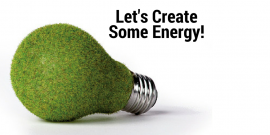Introducing ‘R’ for Recovery
It’s no secret that not only is landfill waste damaging the environment and our planet, but the UK is also facing an electricity crisis (The Guardian Jan 2016). With this in mind, the waste management industry has ‘stepped up’ and introduced a fourth ‘R’ – Recovery.
The ‘Waste-to-Energy’ service
Recovery brings with it a relatively new service called ‘Waste-to-Energy’. This service provides a more sustainable solution that not only minimises waste but creates electricity and heat. Some additional environmental benefits include:
Benefits of ‘Waste-to-Energy’:
ü Waste is diverted from landfill, reducing greenhouse gases and carbon emissions entering the atmosphere and protecting the land from soil contamination
ü Provides energy security and a sustainable solution to fill the UK’s ‘energy gap’
ü Effectively recovers metals and minerals from incinerated ash that can then be recycled or reused
ü An effective strategy that assists in meeting the EU renewable energy targets of 20% by 2020
ü Helps reduce the dependency on energy imports and the environmental cost of transporting that energy to our country
Benefits to customers using the Printwaste ‘Waste-to-Energy’ service:
ü Shields your business from landfill tax
ü Improves your ‘Green’ credentials – A fantastic CSR tool that creates opportunities to generate positive publicity– Green organisations are looked upon more favourably because they “care” for the environment
ü Cost-effective alternative to sending your waste to landfill
With all these benefits, it’s clear to see ‘Waste-to-Energy’ has given general waste bins a new lease of life, but more importantly another means of creating an environmentally sustainable future for us and future generations.
Do your bit
If you’d like to know more about our ‘Waste-to-Energy’ service contact us here.


